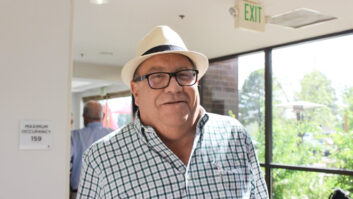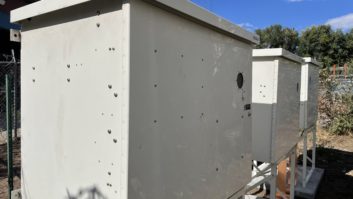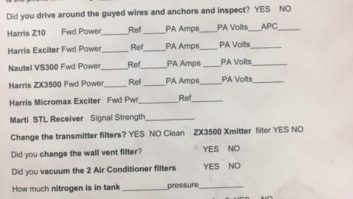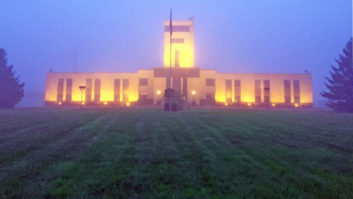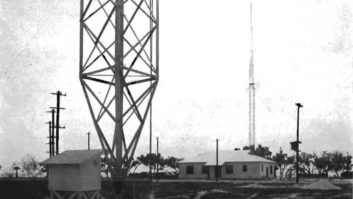The FCC is showing no love for the almost-completed, but now unlicensed, DWKAJ (AM), Little Falls, N.Y. That would-be station has four towers up and a transmitter in place. Unfortunately for its owner, it also had the letter D in front of the call sign, which stands for dark.
The Media Bureau denied a request from Cranesville Block Co. to reinstate the construction permit and give it more time to build the facility. It dismissed a petition for reconsideration, saying the paperwork was late, and denied the waiver request.
The commission originally issued a permit to Michael Celenza for a three-year construction period that was to end in April 2011. It approved transferring the permit to Cranesville, and the sale was finalized in 2010. Cranesville qualified for extra time to build, and the deadline was moved to October 2011.
In early 2011, Cranesville filed an application to change the station’s community of license from Little Falls to Saint Johnsville, N.Y., because the original transmitter site was no longer available. The commission approved that request that summer. Then the area was hit by hurricanes and a tornado. Because of flooding, the transmitter site was no longer accessible, so Cranesville asked the construction deadline to be extended. Construction had not yet begun, and the FCC extended the deadline to Dec. 15, 2011.
In its decision this week, the FCC said it hadn’t received a license application nor a request for a waiver of the construction deadline. In January, Cranesville’s attorney told the commission construction had been delayed but was now completed. He also told the agency that Cranesville hadn’t filed a license application form.
The FCC staff took that as an indication that the station’s license had expired on Dec. 15, 2011. On Jan. 25 of this year, the FCC cancelled DWKAJ’s CP and the calls were deleted from the agency database.
Cranesville then appealed, saying it had changed the city of license in order to serve “a larger area and communities that have no local radio,” according to the commission. The company said its contractor abruptly abandoned the project without notice shortly before the permit expired, even though Cranesville had paid two-thirds of the contract price. Because of the holiday season, Cranesville said it couldn’t find another contractor to finish the job before the December deadline. The company submitted photos and said it has built all four towers, the transmitter and the control unit. The only things that stand between completion and filing a license application are installation of transmission cables on one of the towers and proof of performance testing.
Cranesville argued that it had “made significant investments of both time and money,” acted diligently and in good faith to complete construction by the deadline, and was prejudiced by circumstances beyond its control.
But the FCC said Cranesville filed too late. Petitions for reconsideration of the Dec. 15 action would have been due on Tuesday, Jan. 17, 2012. To get a waiver, the burden would be on the applicant to support the request with a “compelling showing,” the FCC said in its decision this week. The commission has said that waivers of broadcast construction deadlines are appropriate when construction has been prevented by “rare and exceptional circumstances” beyond the permittee’s control. Cranesville has not shown sufficiently unique circumstances to warrant a waiver of the construction deadline, according to the agency, noting that vendor and contractor problems are ordinary risks for which licensees must plan for.
Additionally, the construction Cranesville says it has completed appear to have occurred six weeks after the permit expired, “when CBC had neither requested a waiver of the deadline nor special temporary authority to construct despite expiration of its permit,” the agency stated. It has a policy not to credit unauthorized construction and/or operation when considering whether a permittee’s efforts justify a rule waiver.
Cranesville has also not shown that the automatic forfeiture of the AM permit would leave a substantial population without radio reception; Saint Johnsville also receives service from 10 FMs licensed to surrounding communities, the FCC noted.
Cranesville must maintain the towers, including painting them for air navigation safety, until they are dismantled, the agency ordered.





